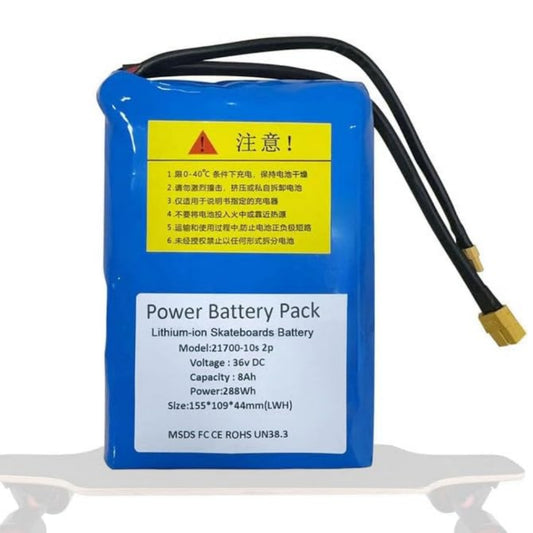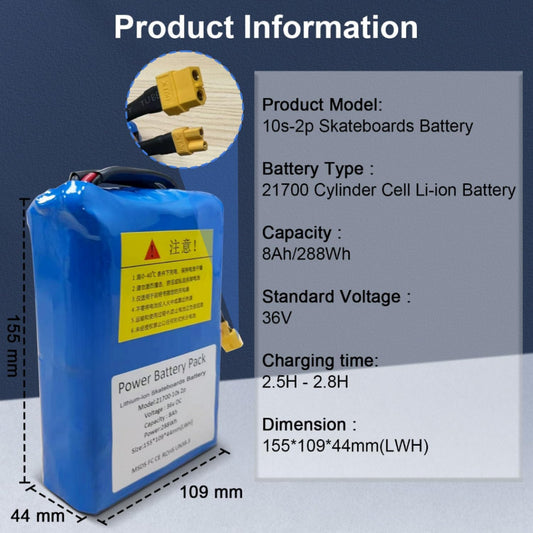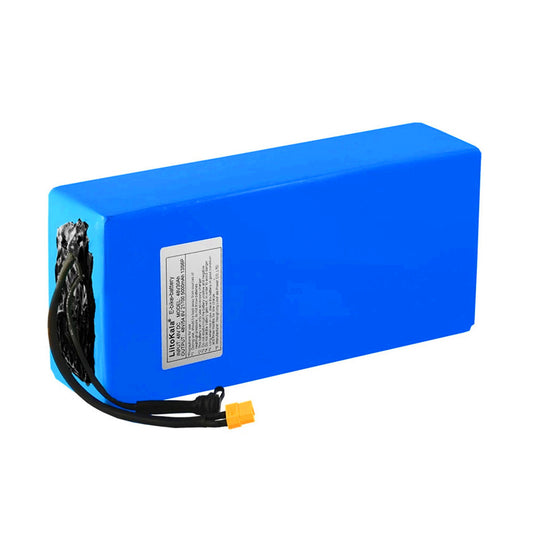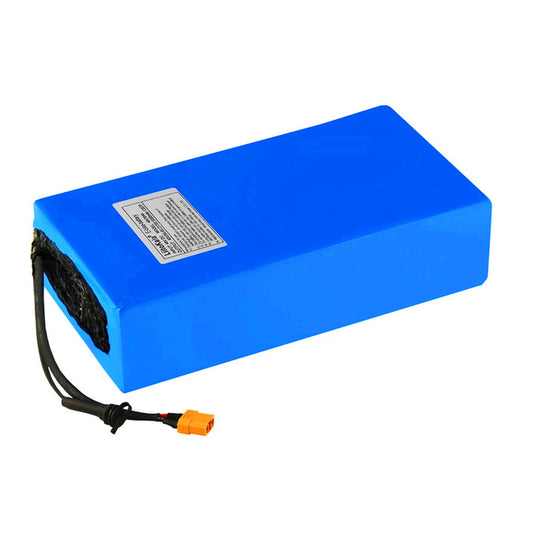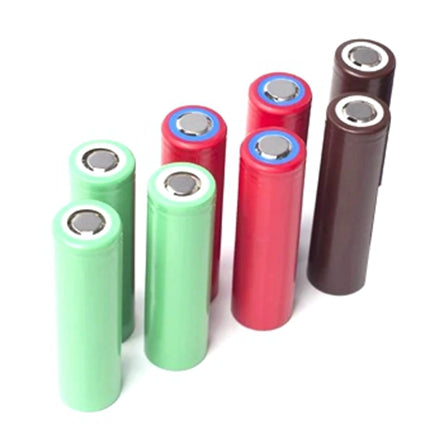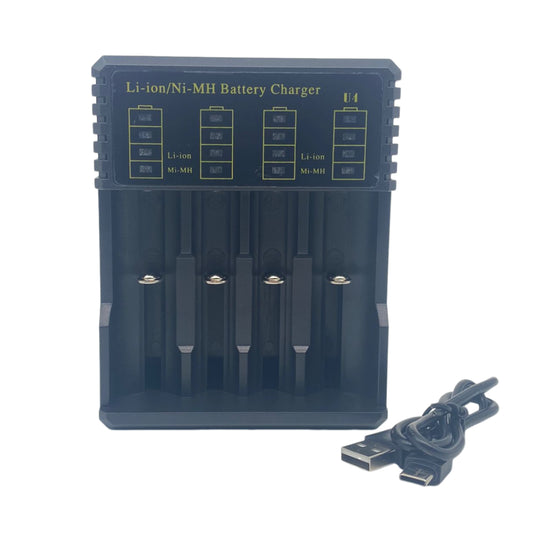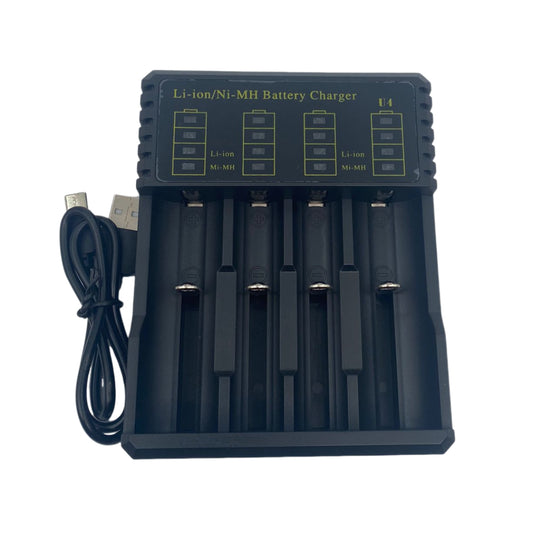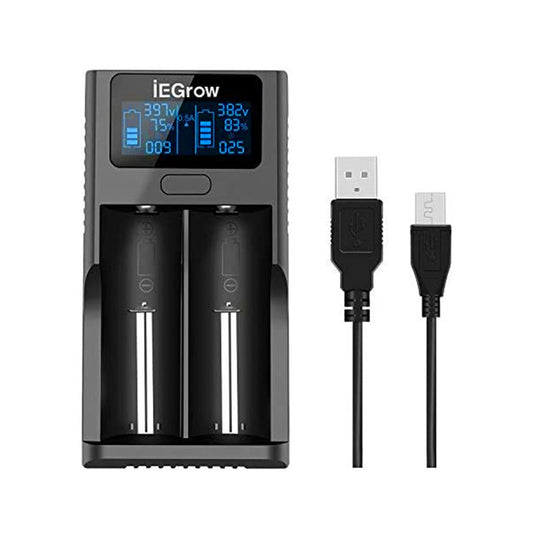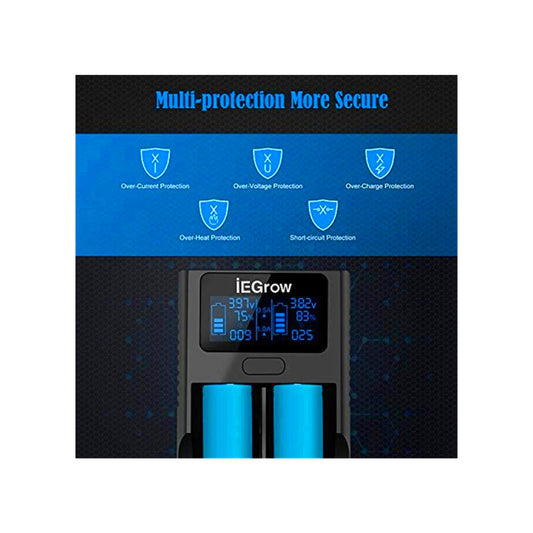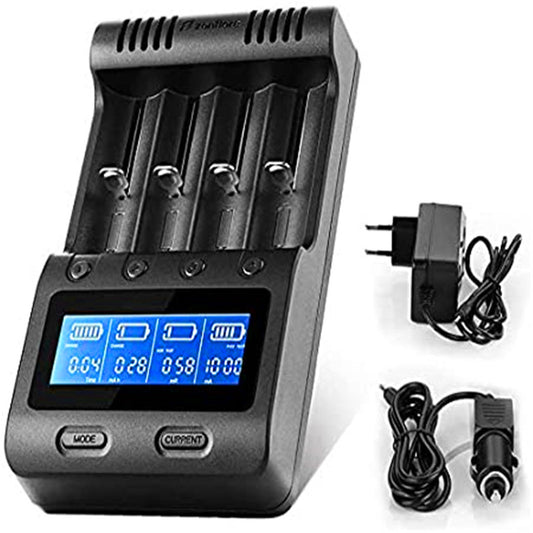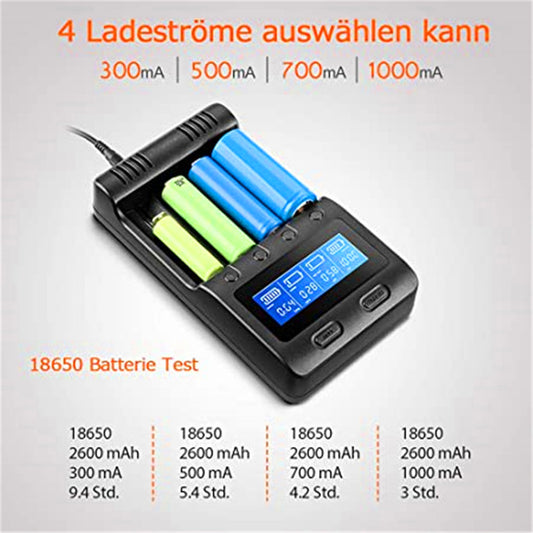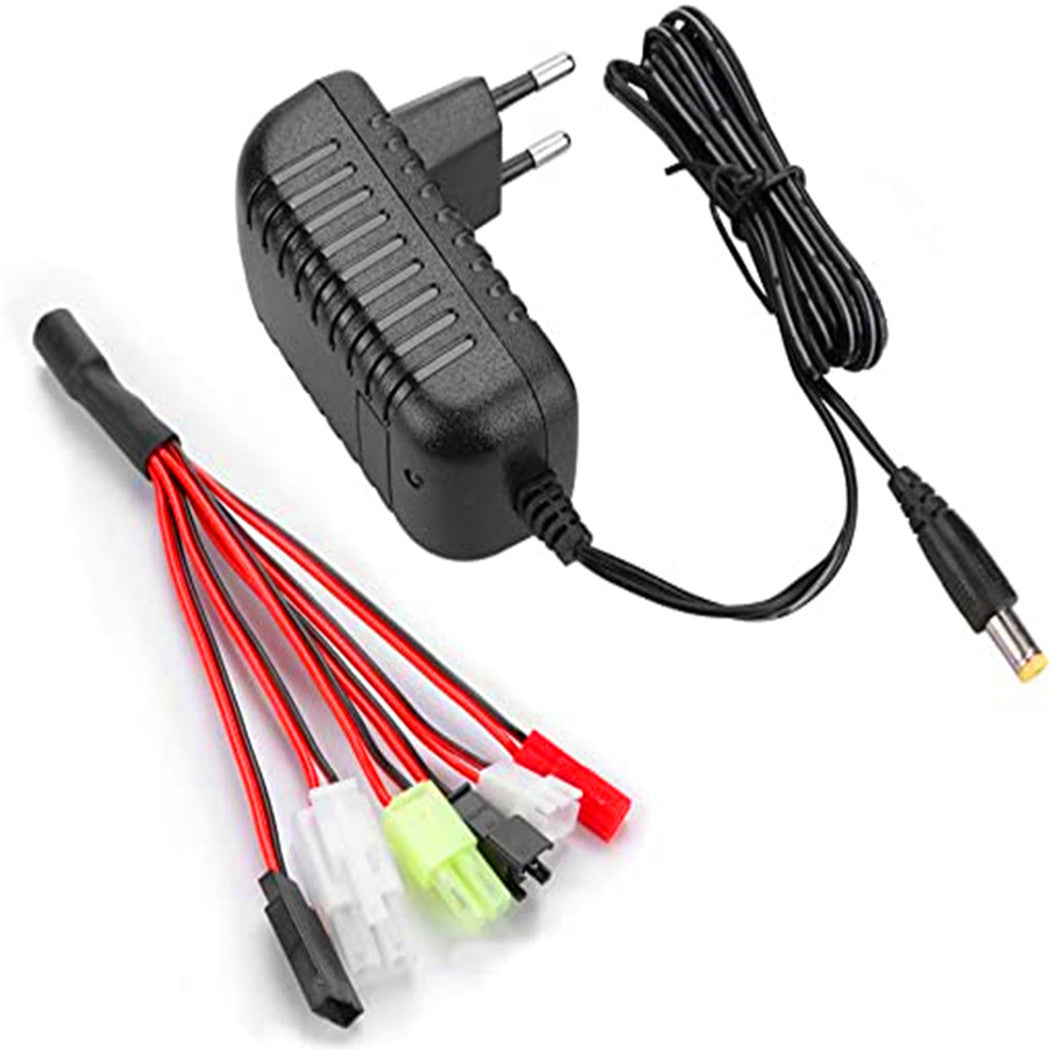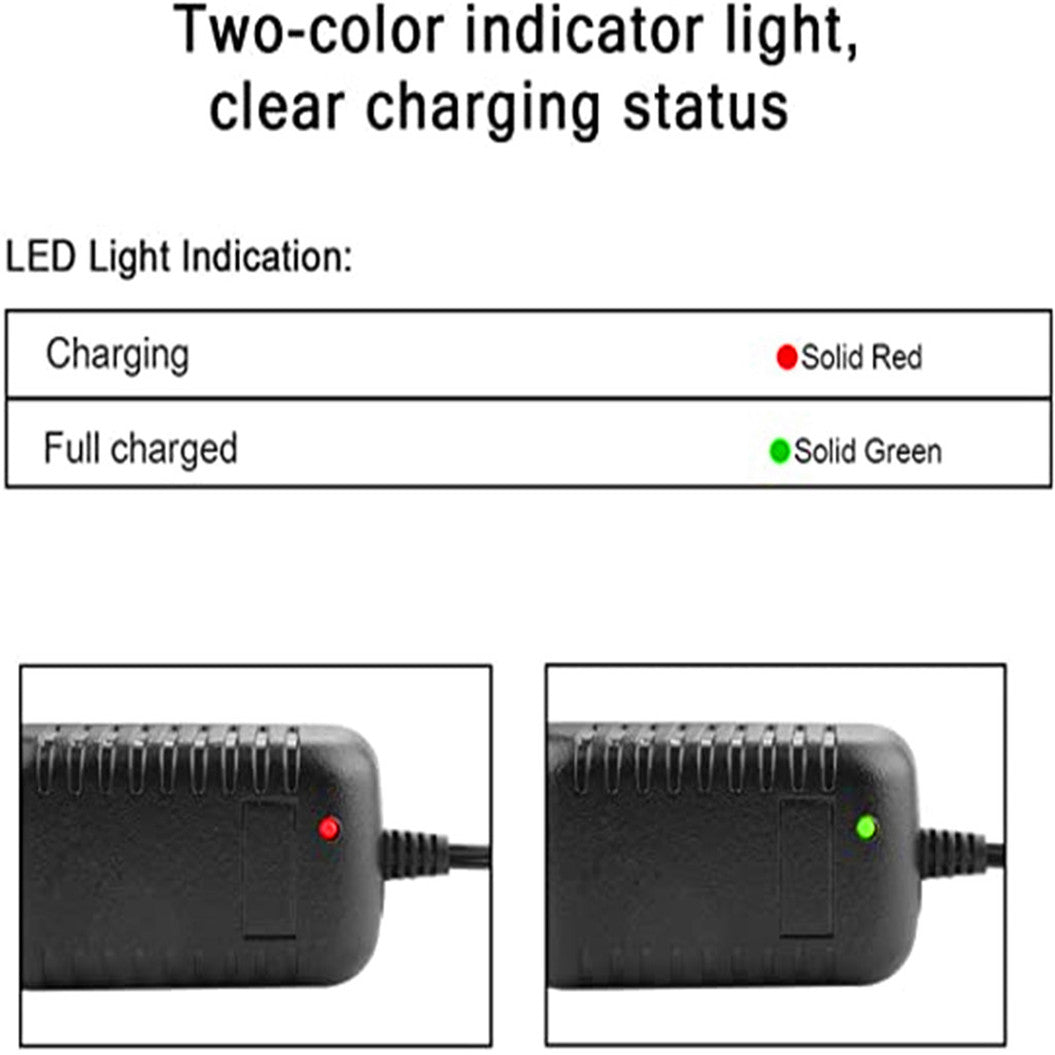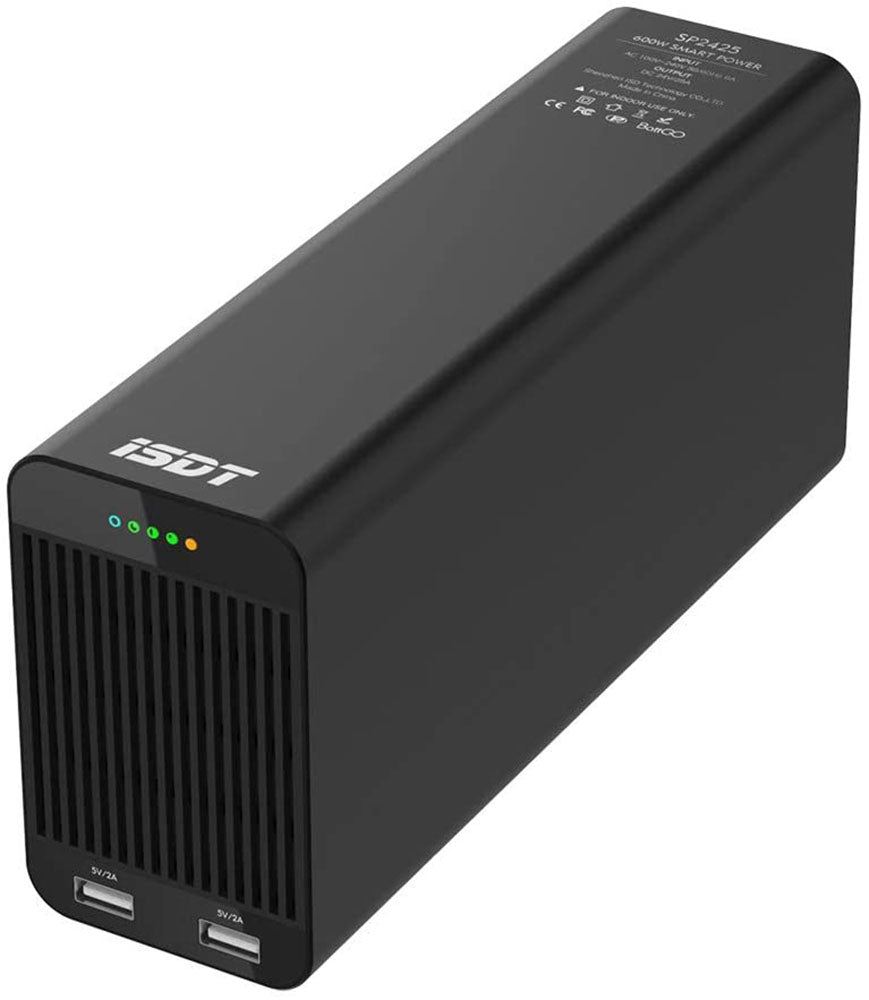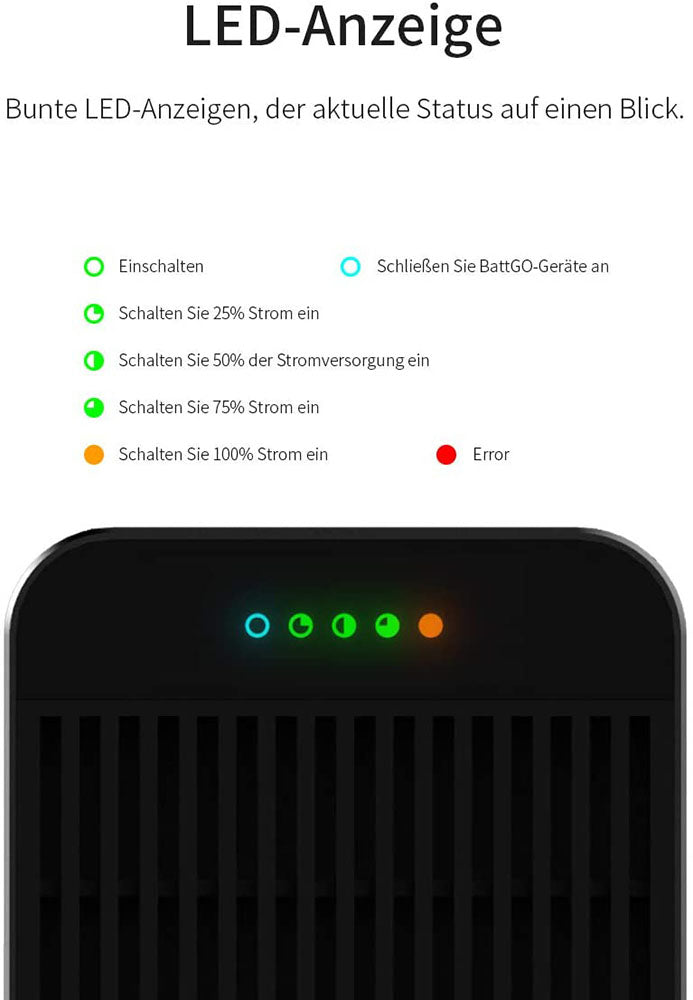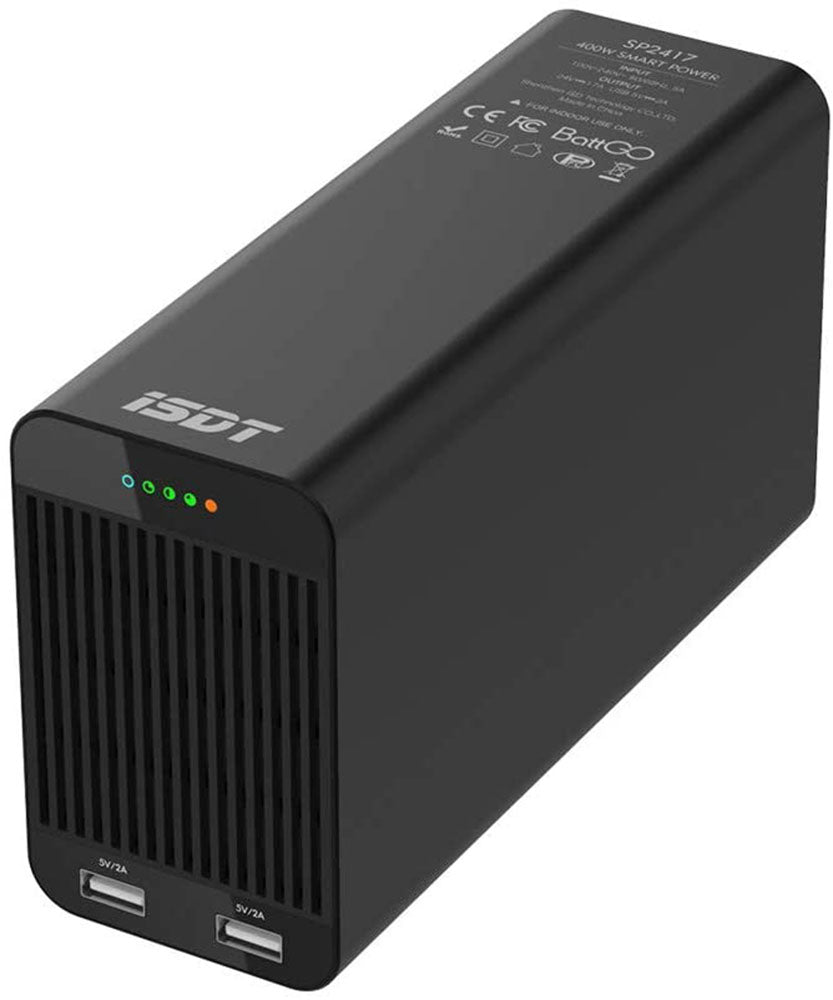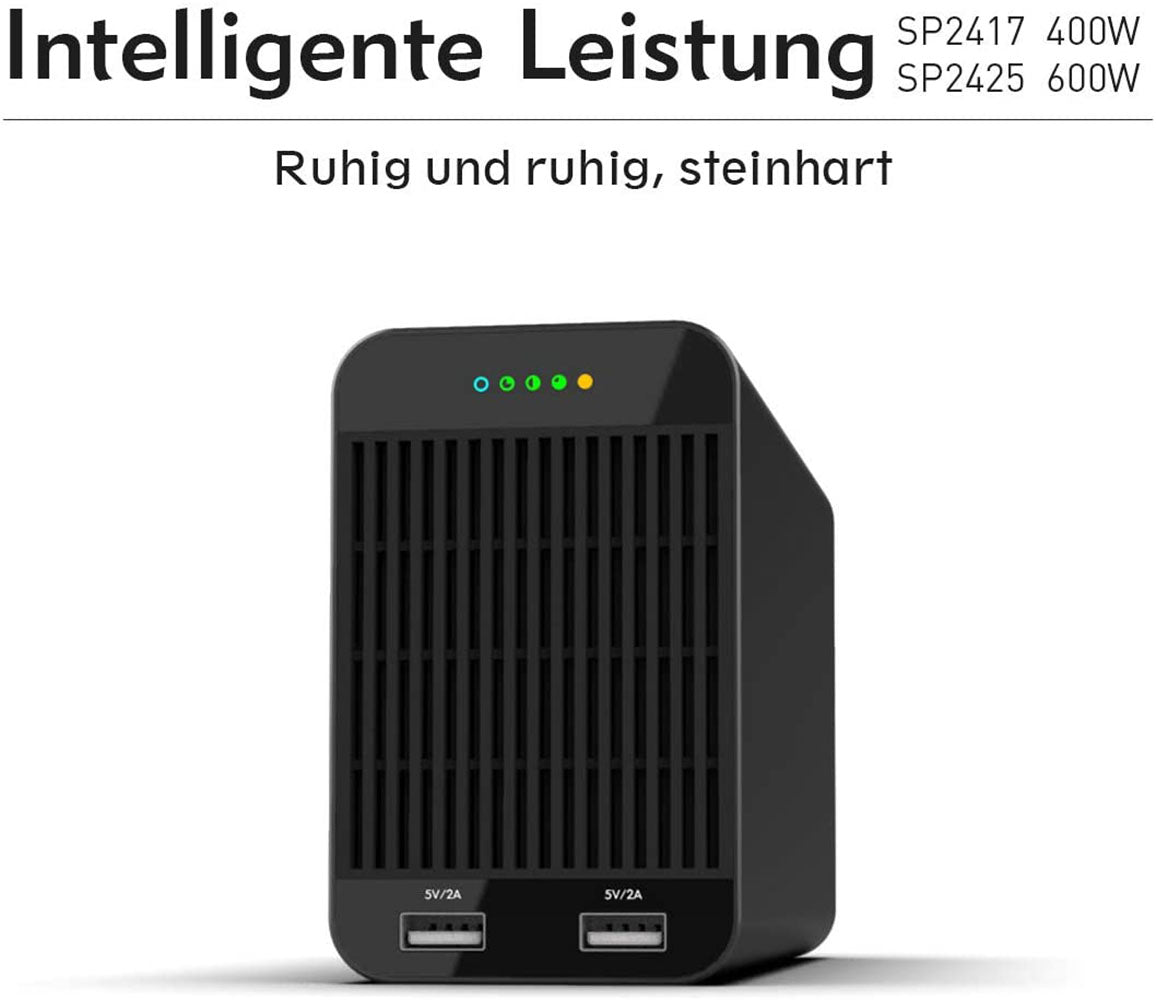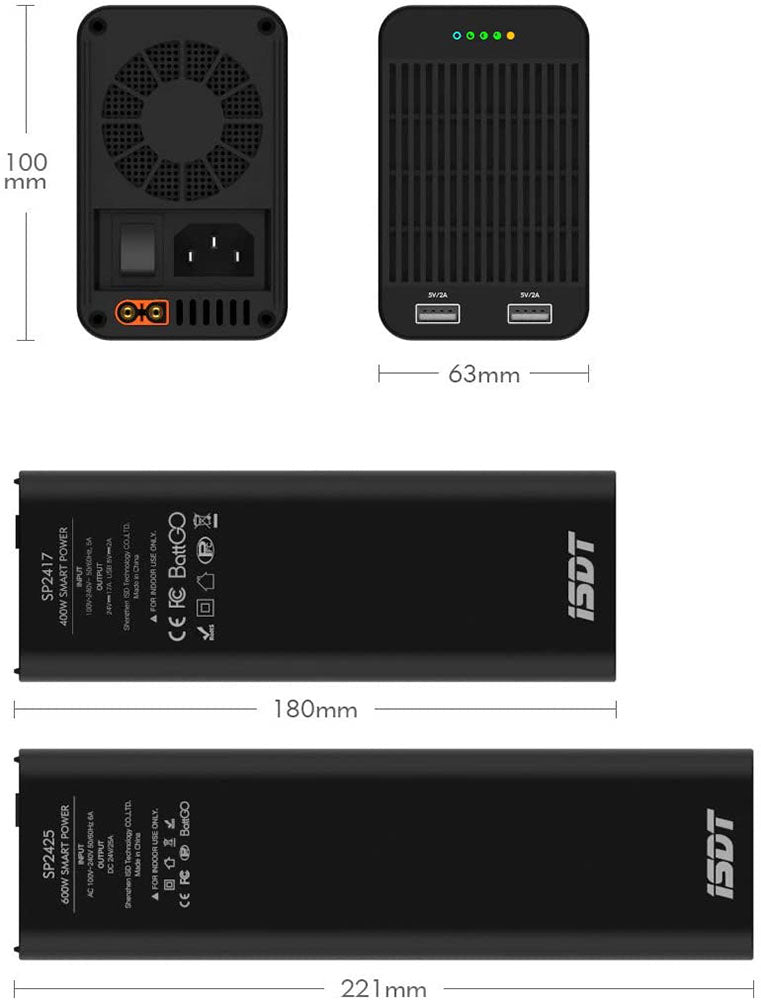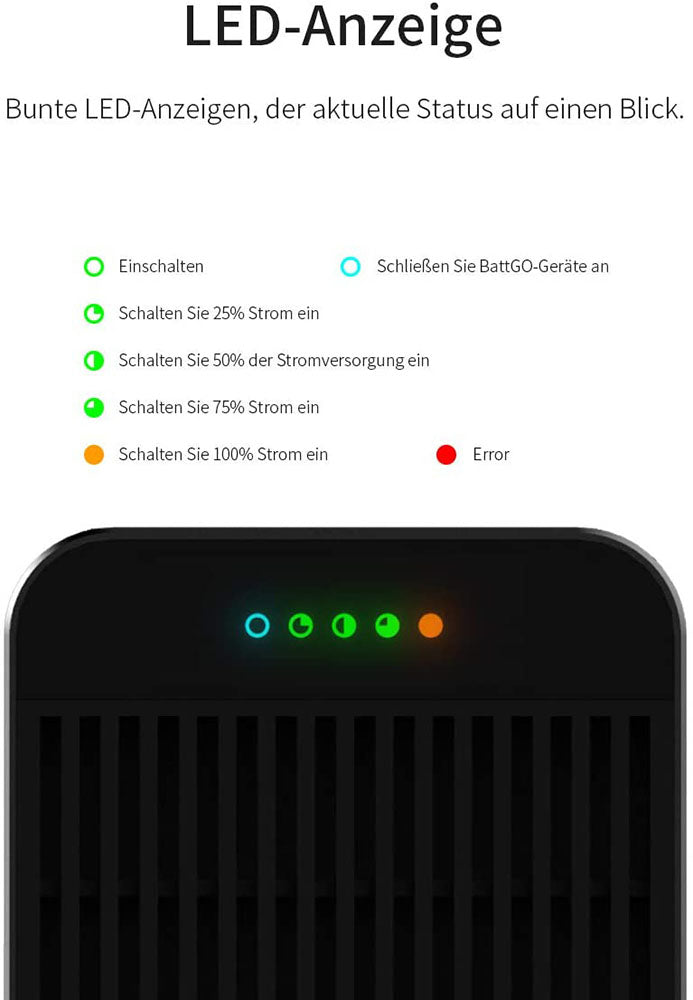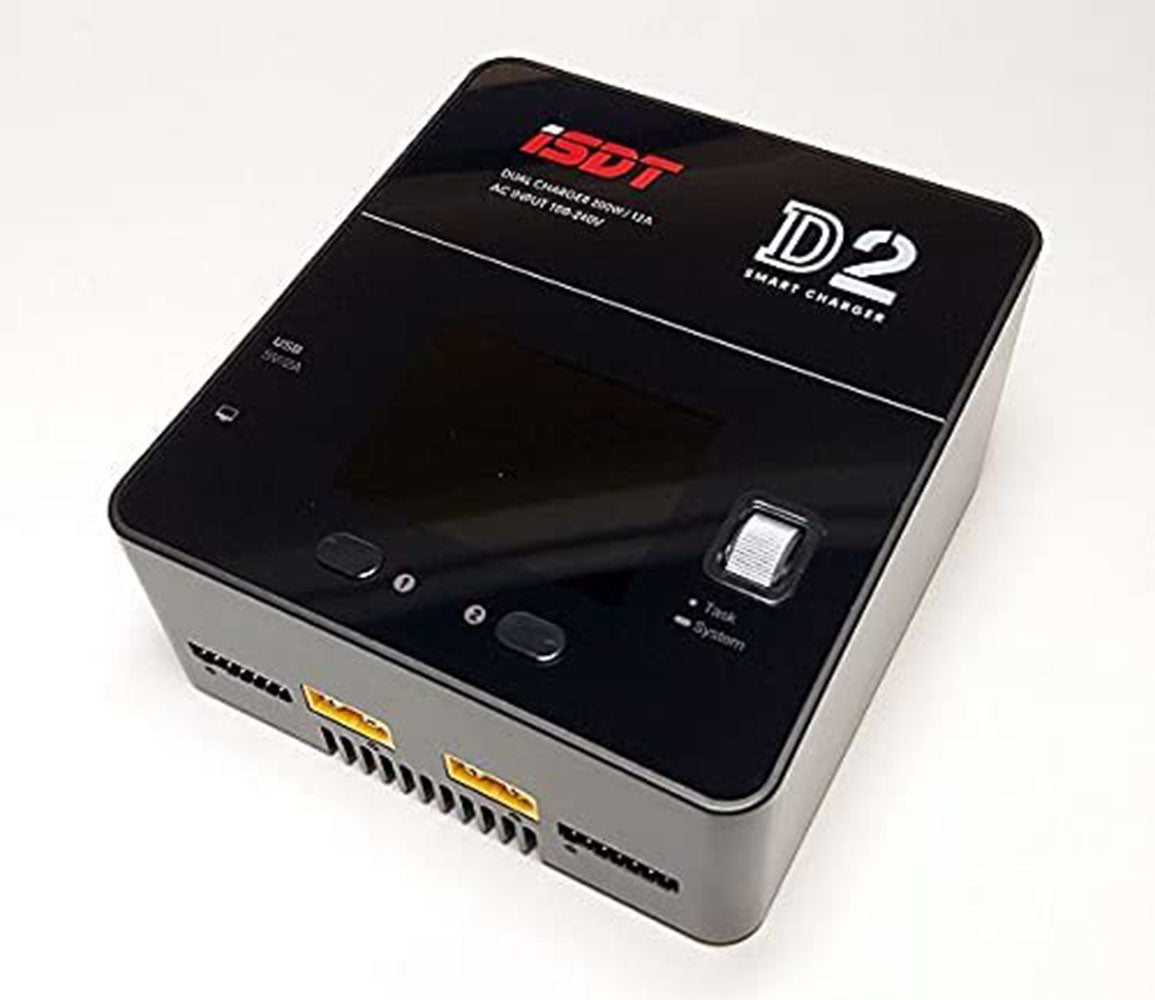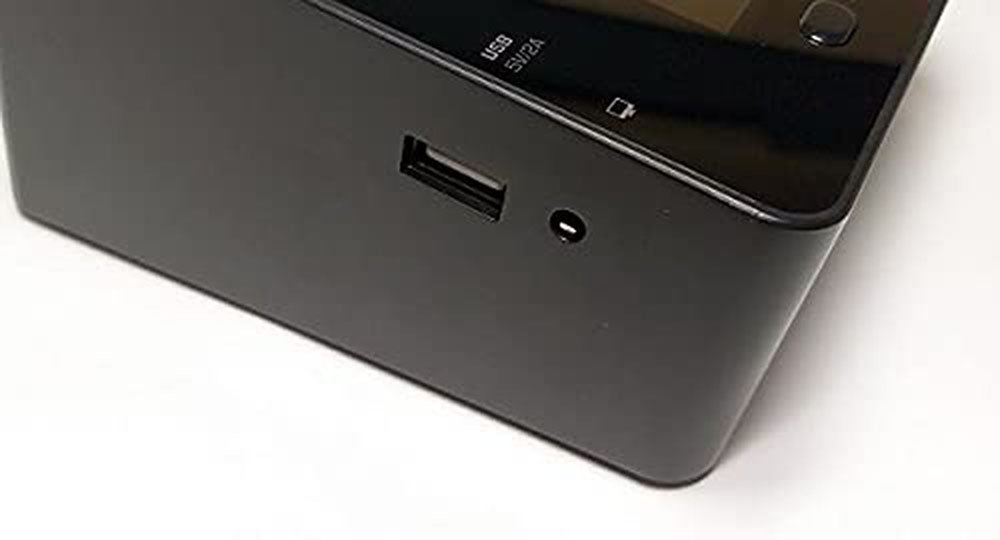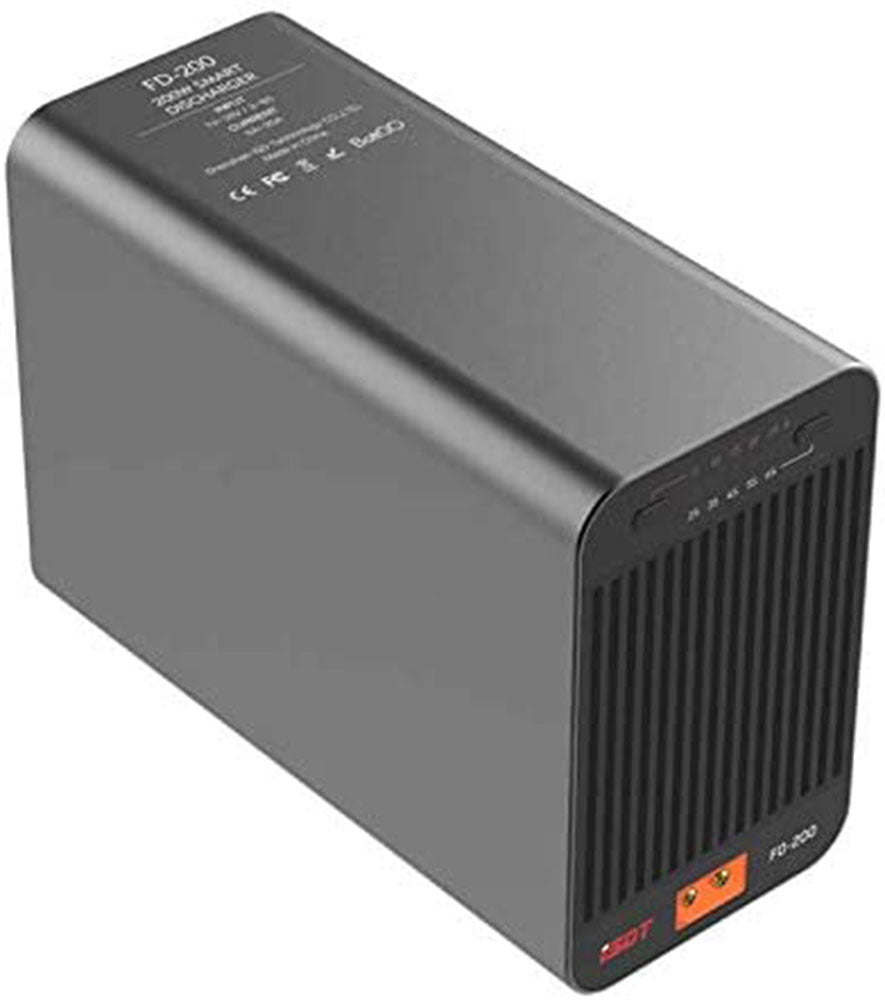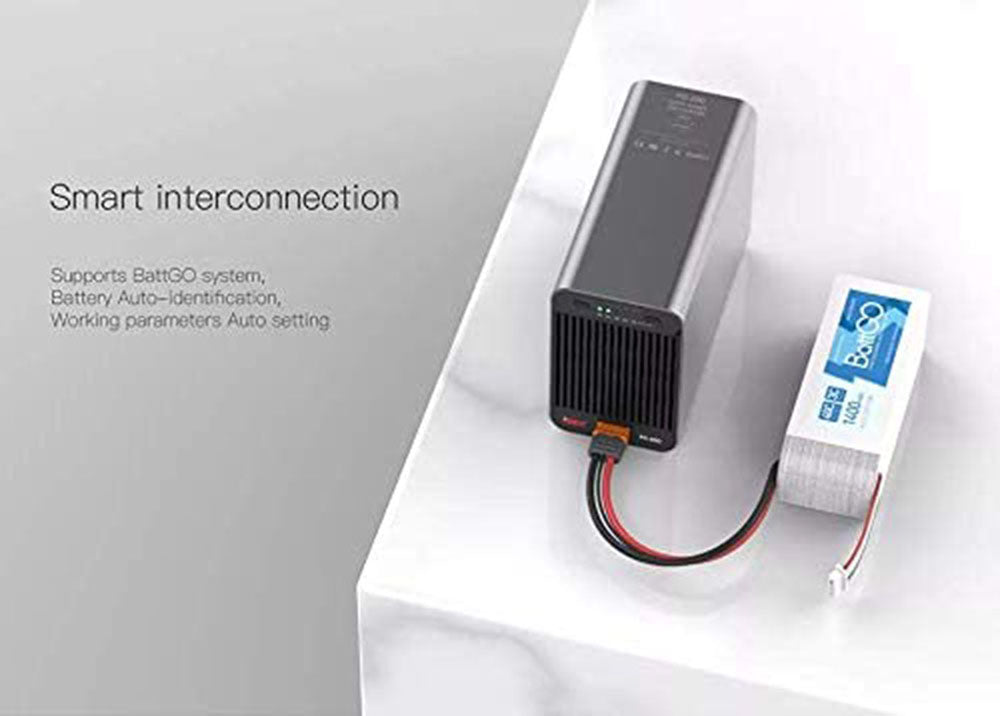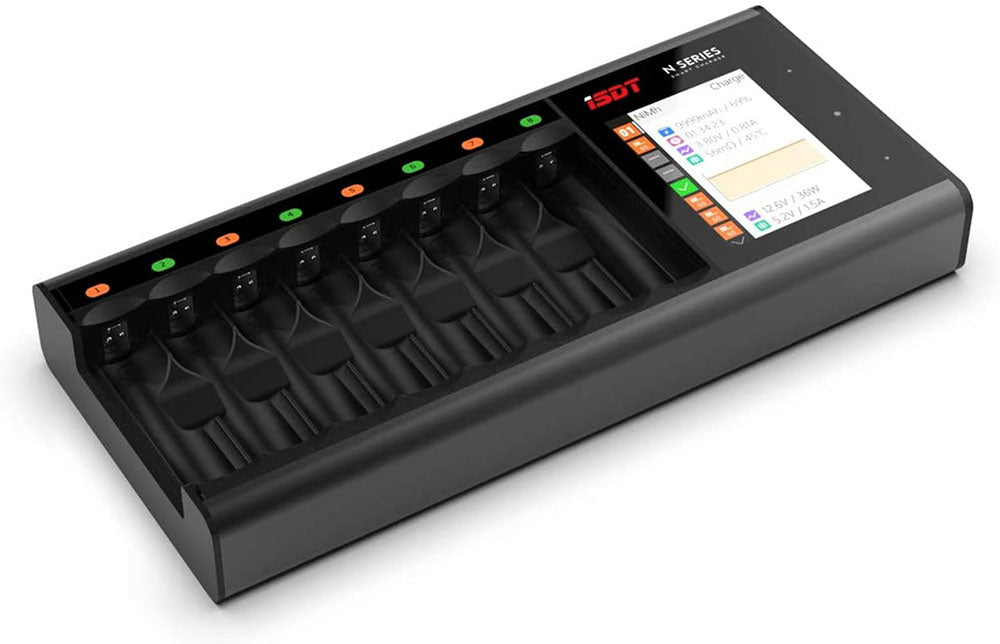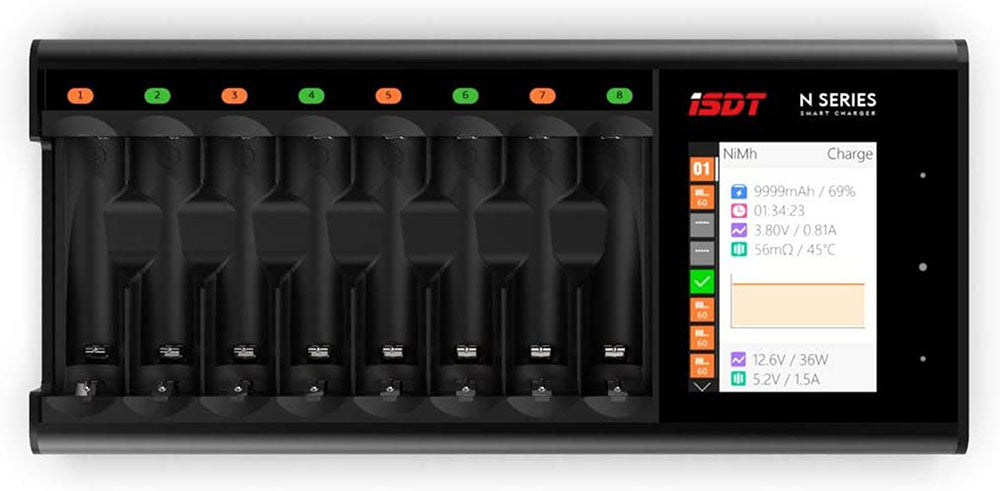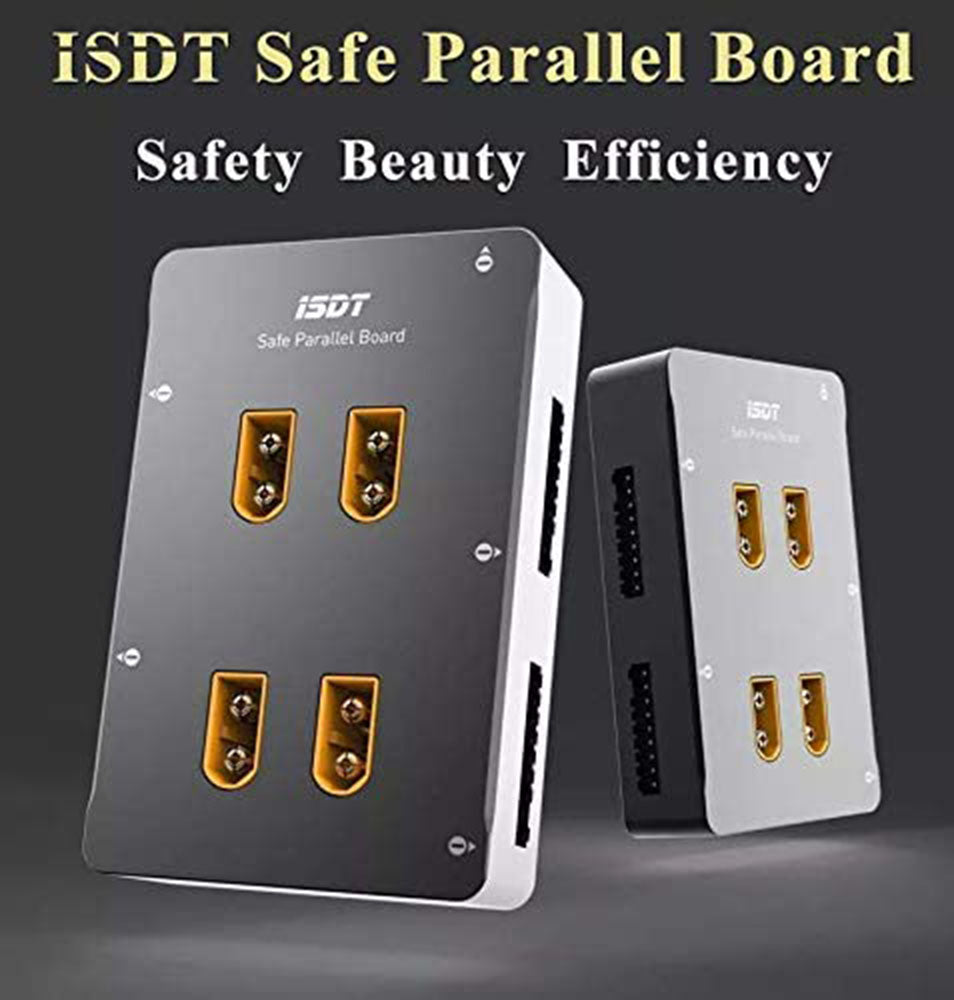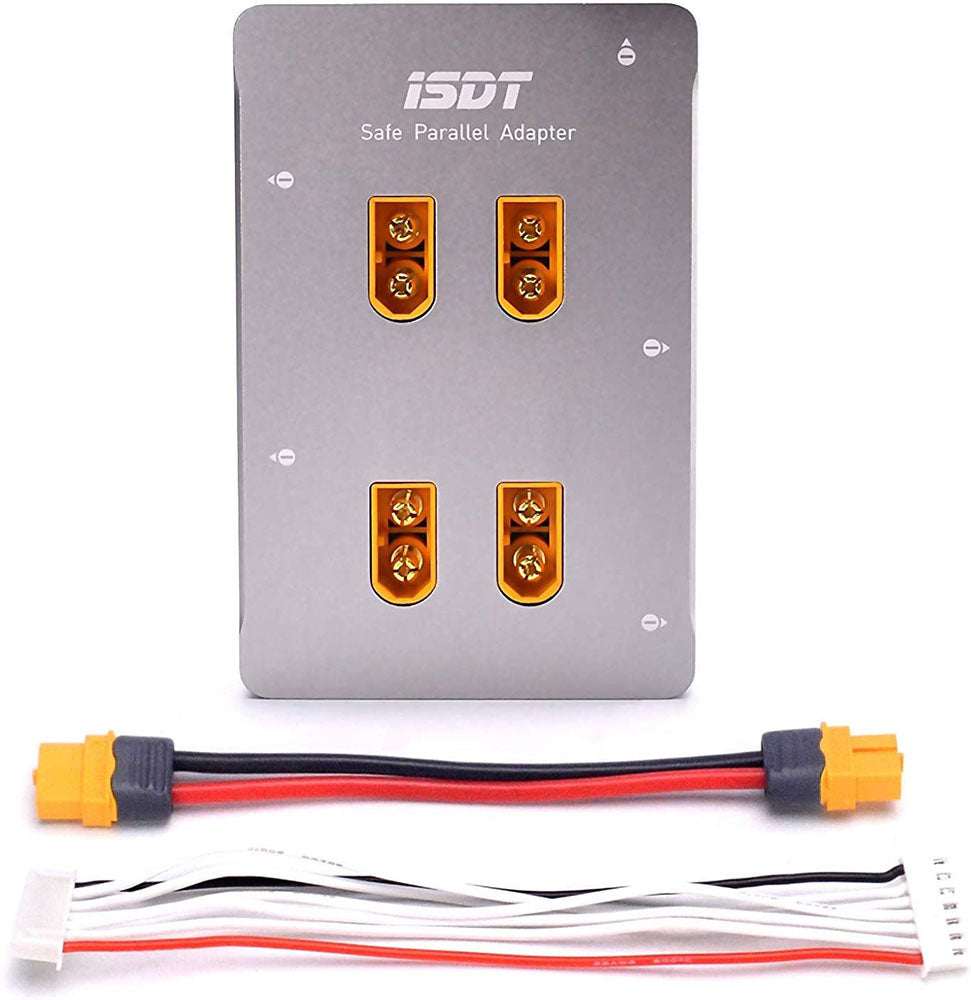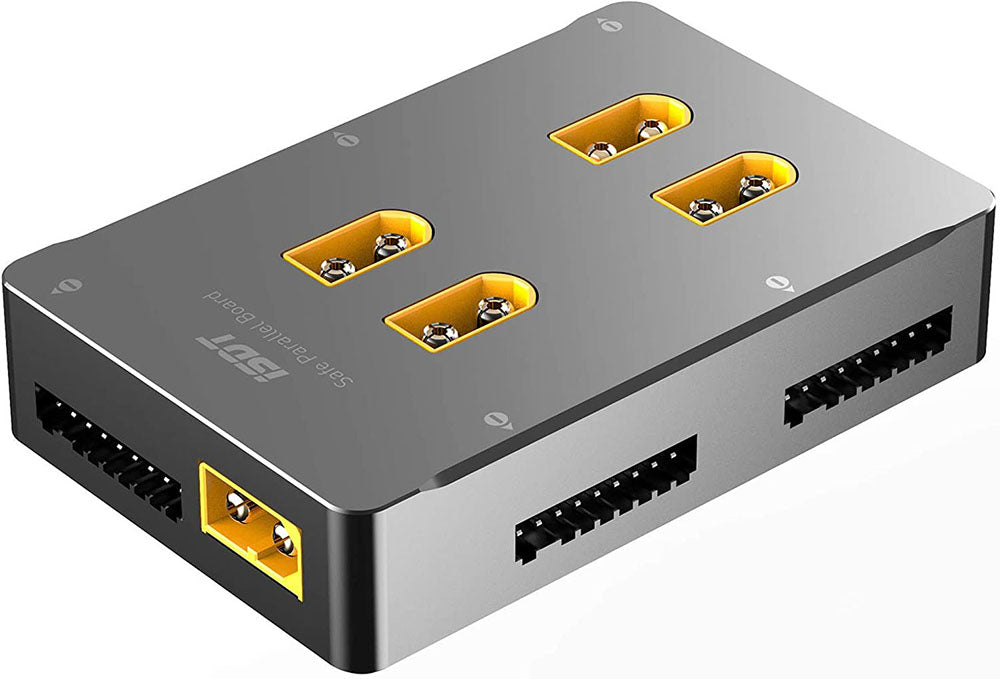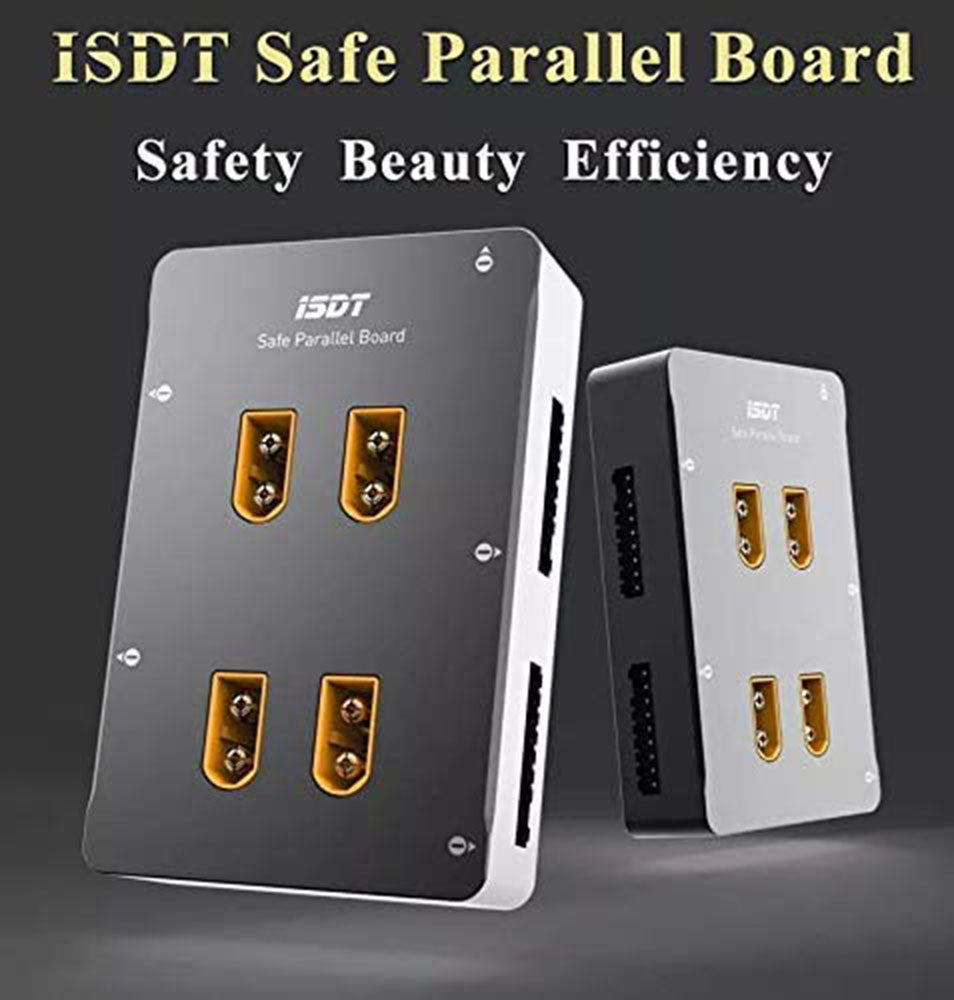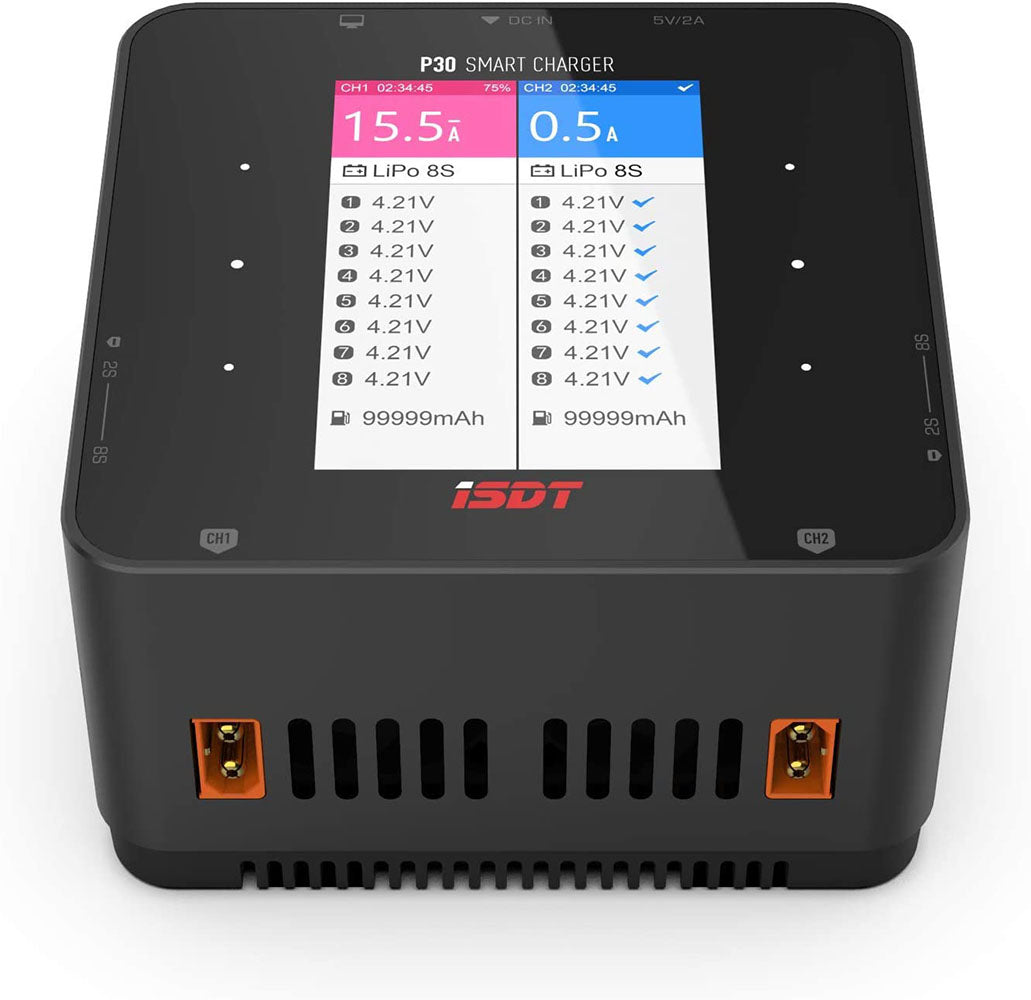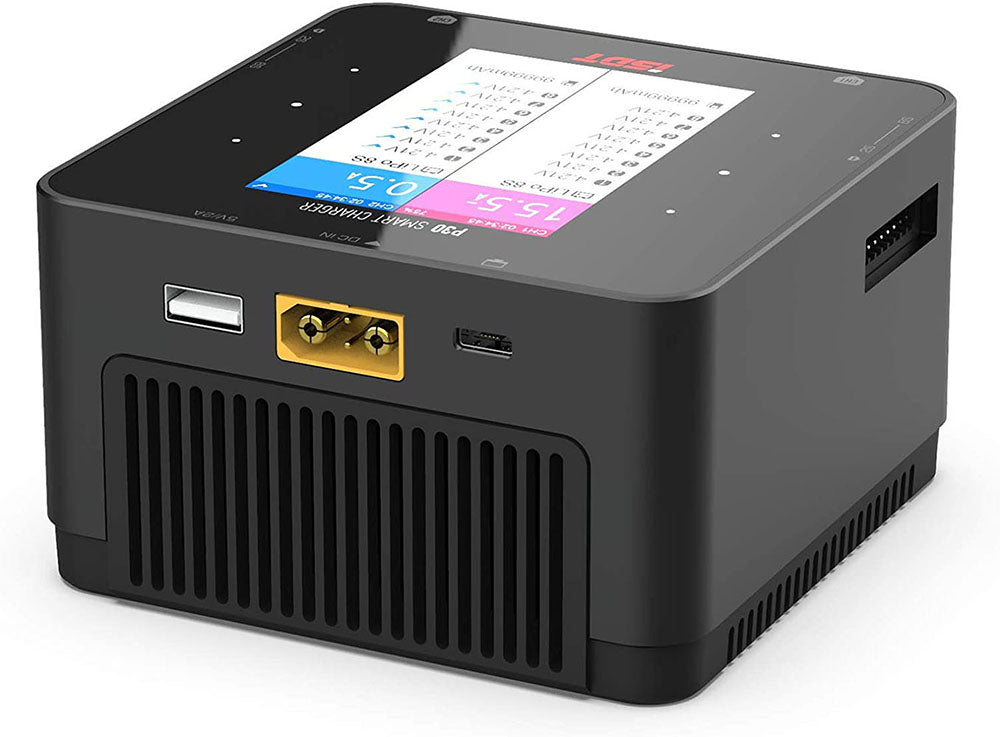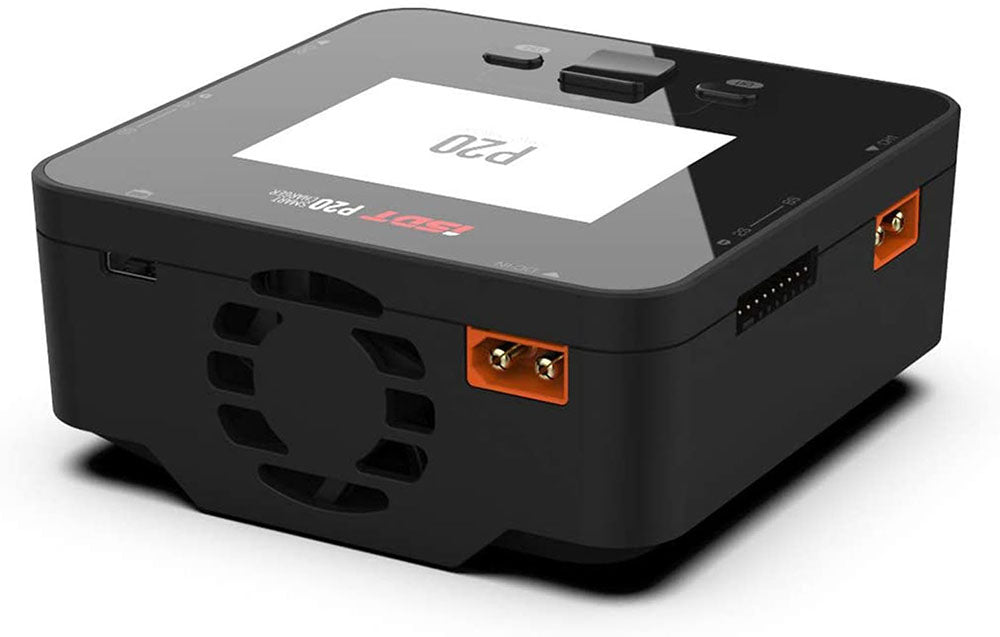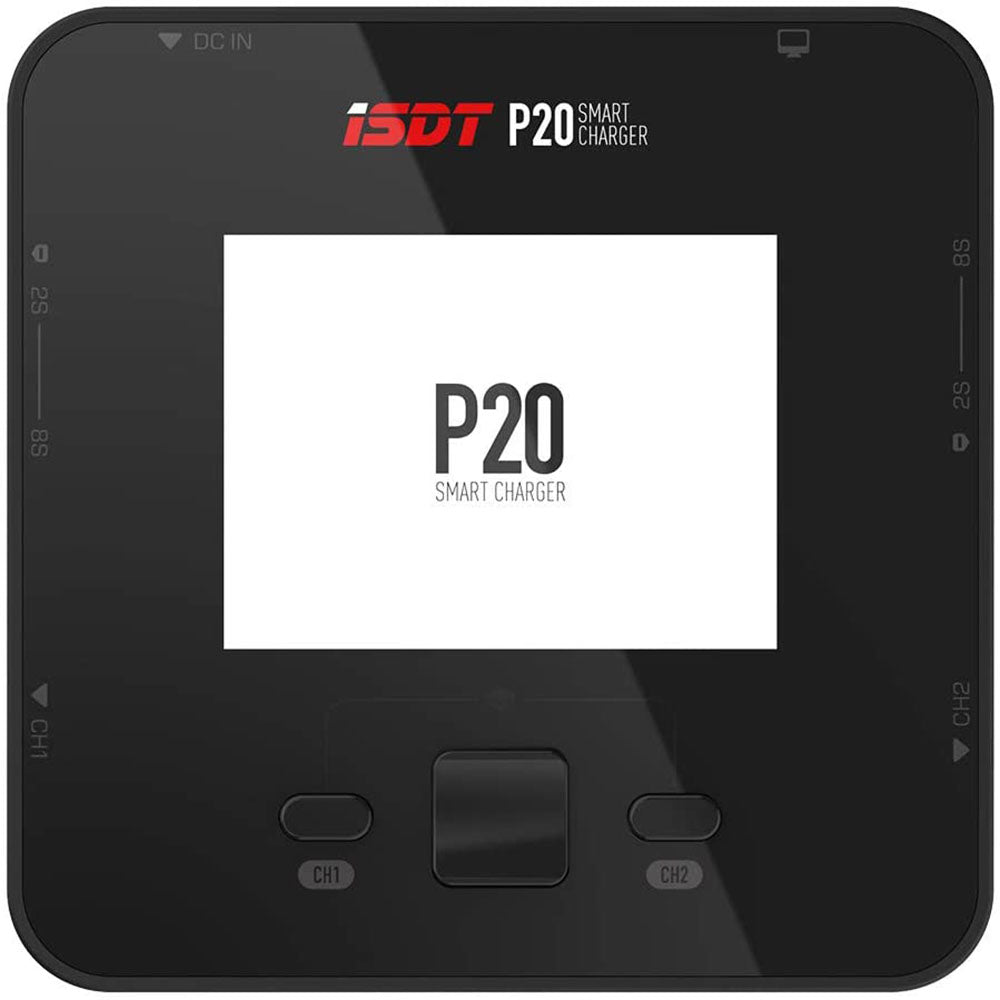-
Vendor:BATTERYINT
Airsoft Charger for 2-10s RC Car / RC Boat / RC Airplane / Drone (Standard Tamiya / Mini Tamiya / SM 2P / JST / HuanQi)
- Regular price
- $22.24
- Regular price
-
- Sale price
- $22.24
- Unit price
- per
Airsoft Charger for 2-10s R... -
Vendor:BATTERYINT
SP2425 600W 25A ISDT BattGo LED indicator light adapter for intelligent power supply with double USB charging output
- Regular price
- $106.45
- Regular price
-
- Sale price
- $106.45
- Unit price
- per
SP2425 600W 25A ISDT BattGo... -
Vendor:BATTERYINT
SP2417 ISDT BattGo 400W 17A Smart Power Supply Adapter Power Station Connectors
- Regular price
- $70.75
- Regular price
-
- Sale price
- $70.75
- Unit price
- per
SP2417 ISDT BattGo 400W 17A... -
Vendor:BATTERYINT
SP2417 ISDT BattGo 400W 17A Power Adapter Intelligent Power Station Connectors for Travel Camping for LiPo Li-ion NiMH Nicd Battery
- Regular price
- $70.75
- Regular price
-
- Sale price
- $70.75
- Unit price
- per
SP2417 ISDT BattGo 400W 17A... -
Vendor:BATTERYINT
D2 Mark 2 200W 12A ISDT Power Supply Lipo Battery Balance Charger Discharger AC DC Dual for Rc Models 1-6S Li-ion Life NiCd NiMH LiHV PB
- Regular price
- $141.00
- Regular price
-
- Sale price
- $141.00
- Unit price
- per
D2 Mark 2 200W 12A ISDT Pow... -
Vendor:BATTERYINT
FD-200 ISDT App Control Lipo Battery Balance Discharger 200W/25A 2-8s 7-35v Lipo Battery
- Regular price
- $119.00
- Regular price
-
- Sale price
- $119.00
- Unit price
- per
FD-200 ISDT App Control Lip... -
Vendor:BATTERYINT
ISDT N24 Battery Charger Battery Charger Universal LCD Display Fast Charger Charger for 24 Batteries AA AAA Li-lon LiHv NI-MH NI-Cd LiFePO4 Eneloop
- Regular price
- $189.79
- Regular price
-
- Sale price
- $189.79
- Unit price
- per
ISDT N24 Battery Charger Ba... -
Vendor:BATTERYINT
ISDT N8 battery charger LCD display quick charger for 8 batteries NI-MH NI-Cd AA AAA Li-ion LiFePO4 Eneloop Panasonic Varta battery
- Regular price
- $88.00
- Regular price
-
- Sale price
- $88.00
- Unit price
- per
ISDT N8 battery charger bat... -
Vendor:BATTERYINT
PC-4860 ISDT Lipo Charger Parallel Charging Station Support 4 Packs of LiPo Battery 1-8S XT60 RC
- Regular price
- $38.86
- Regular price
-
- Sale price
- $38.86
- Unit price
- per
PC-4860 ISDT Lipo Charger P... -
Vendor:BATTERYINT
PC-4860 ISDT Lipo Charger Parallel Charging Station Support 4 Packs of 1-8S XT60 RC LiPo Battery
- Regular price
- $38.86
- Regular price
-
- Sale price
- $38.86
- Unit price
- per
PC-4860 ISDT Lipo Charger P... -
Vendor:BATTERYINT
P30 1000WX2 30AX2 ISDT Power Dual Channel Bluetooth BattGo Lipo Smart Battery Balance Charger for 1-8S Li-ion NiCd NiMH
- Regular price
- $208.90
- Regular price
-
- Sale price
- $208.90
- Unit price
- per
P30 1000WX2 30AX2 ISDT Powe... -
Vendor:BATTERYINT
P20 800W 35A ISDT Lipo Battery Balance Charger DC 500WX2 Dual for Rc Models 1-8S Li-ion Life NiCd NiMH LiHV PB
- Regular price
- $137.95
- Regular price
-
- Sale price
- $137.95
- Unit price
- per
P20 800W 35A ISDT Lipo Batt...
Showing 1 -12 of 15 items
1. What is a LiPo charger?
A LiPo charger is a device specifically designed to charge lithium polymer (LiPo) batteries, which are commonly used in RC vehicles, drones, and other electronics that require high-performance batteries. A LiPo charger ensures that the battery is charged safely and efficiently, taking into account the unique characteristics of LiPo cells. These chargers, such as an ISDT charger, monitor the charging process to prevent overcharging or overheating, which can damage the battery.
2. Can I use a regular battery charger for LiPo batteries?
No, it is not recommended to use a regular battery charger for LiPo batteries. LiPo batteries require specific voltage and current settings to charge safely, and a standard charger may not provide these. Using an incompatible charger can lead to overcharging, overheating, or even damaging the battery. Always use a dedicated LiPo battery charger, such as an ISDT battery charger, which is designed to handle the unique requirements of LiPo batteries.
3. How long does it take to charge a LiPo battery?
The charging time for a LiPo battery depends on the battery's capacity and the output of the charger. On average, a LiPo charger takes about 1 to 3 hours to fully charge a battery. Using a faster charger for lithium polymer battery, like an ISDT charger, can reduce the charging time. However, it’s important to follow the manufacturer’s recommendations to avoid overcharging and to preserve the battery’s lifespan.
4. What safety precautions should I take when using a LiPo battery charger?
When using a LiPo battery charger, it’s essential to follow safety guidelines. Always charge the battery on a non-flammable surface, such as a LiPo-safe charging bag, and never leave the battery unattended while charging. Use a charger designed specifically for LiPo batteries, such as an ISDT battery charger, which offers safety features like balancing and overcharge protection. Additionally, ensure that the battery is not damaged or swollen before charging to prevent potential hazards.
5. Can I charge different types of batteries with a LiPo charger?
Some advanced LiPo chargers, like the ISDT charger, are designed to charge multiple types of batteries, including Li-ion, NiMH, and NiCd. These chargers typically have adjustable settings to accommodate the different charging requirements of various battery chemistries. However, it’s crucial to make sure the charger is set to the correct mode for the battery type you are charging to avoid damaging the battery or the charger itself.
6. How can I tell if my LiPo charger is working properly?
To check if your LiPo charger is working properly, monitor the indicator lights or digital display on the charger. Most LiPo battery chargers, like the ISDT charger, have status indicators that show whether the battery is charging, fully charged, or if there’s an error. If the battery doesn’t charge or the charger gets excessively hot, it could indicate a malfunction. Regularly inspecting the charger and ensuring proper connections will help ensure the charger is working correctly.
7. What is an ISDT charger?
An ISDT charger is a high-performance battery charger designed for various types of batteries, including LiPo, Li-ion, and other rechargeable battery chemistries. ISDT chargers are known for their efficiency, user-friendly interfaces, and advanced safety features, such as balance charging and overcharge protection. They are popular among hobbyists and professionals for charging LiPo batteries in RC vehicles, drones, and other devices that require precise charging control.
8. Can I leave my LiPo battery on the charger overnight?
It’s not recommended to leave a LiPo battery on the charger overnight unless the charger has an automatic shut-off or overcharge protection feature. Even with a high-quality charger for lithium polymer battery, like an ISDT battery charger, it’s best to monitor the charging process to ensure safety. Overcharging a LiPo battery can lead to damage or, in some cases, dangerous situations like overheating or fire.
9. How can I extend the life of my LiPo battery and charger?
To extend the life of both your LiPo battery and charger, follow proper charging practices. Avoid fully discharging your LiPo battery before recharging, and always use a charger specifically designed for LiPo batteries, like an ISDT charger. Store the battery in a cool, dry place when not in use and avoid exposing it to extreme temperatures. Regularly check both the battery and the charger for any signs of damage or wear, and replace them if necessary.
10. What features should I look for in a battery charger for LiPo batteries?
When choosing a battery charger for LiPo batteries, look for features such as balance charging, overcharge protection, and adjustable charge rates. Advanced chargers like the ISDT charger also offer digital displays, multiple battery compatibility, and safety features that ensure safe and efficient charging. A good LiPo charger will provide precise control over the charging process, which helps to extend the life of the battery and maintain its performance.


